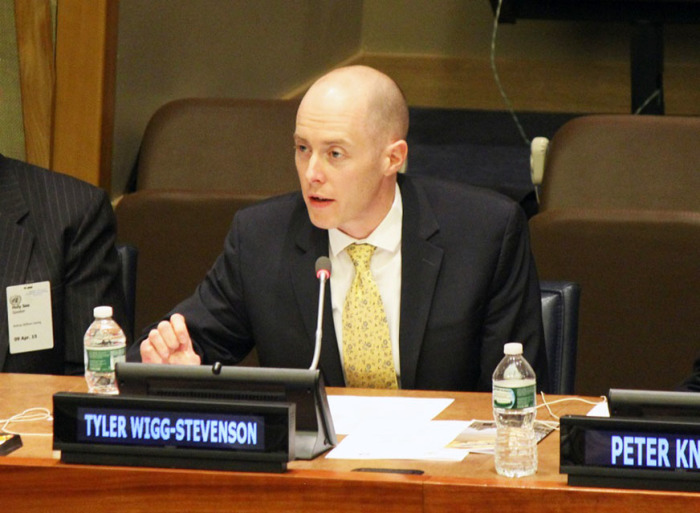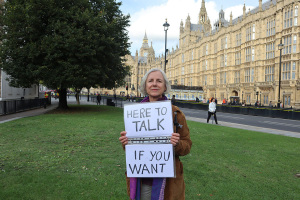Global Christian Groups Call for Worldwide Nuclear Weapons Ban at UN

A global evangelical group joined leaders from the Roman Catholic Church and other religious denominations in an event at the United Nations to declare that nuclear weapons are contrary to faith, morality and reason, and to call for a ban on their possession.
The Bible "tells us that the peacemakers are blessed," Tyler Wigg-Stevenson, chair of the World Evangelical Alliance's Global Task Force on Nuclear Weapons, said at a public panel discussion at the United Nations headquarters in New York on "Nuclear Weapons and the Moral Compass" last week, according to a statement released by WEA on Monday.
Wigg-Stevenson reminded that Scripture "also tell us to condemn those who say 'peace, peace' when there is no peace — as the prophet Jeremiah did to the court sycophants in his day, who denied that the nation's injustice invited the judgment of God."
WEA represents about 600 million evangelicals in more than 120 nations.
"There is no peace about nuclear weapons," Wigg-Stevenson added.
The discussion was held to bring moral values to the upcoming Review Conference of the Nuclear Non-Proliferation Treaty, to be held from April 27 to May 22 at the UN.
The NPT is a landmark international treaty aimed at preventing the spread of nuclear weapons and weapons technology, promoting cooperation in the peaceful uses of nuclear energy and furthering the goal of achieving nuclear disarmament and general and complete disarmament.
The discussion was co-sponsored by the Permanent Observer Mission of the Holy See and the Global Security Institute. It included moral voices on nuclear weapons from a variety of religious traditions, including Jewish and Muslim leaders, as well as representatives from the UN, government and inter-faith organizations.
The upcoming conference is expected to consider several key issues, including implementation of the 1995 resolution on the Middle East.
At the discussion, Wigg-Stevenson offered an evangelical perspective to refute the argument that "moral values are irrelevant to nuclear weapons."
There are five nuclear-weapon states under the NPT: the United States, Russia, the United Kingdom, France and China. India, Pakistan, North Korea have also declared possession of nuclear weapons. Israel is also believed to possess nuclear weapons. Many believe that Iran is also pursuing research that could enable it to produce nuclear weapons.
These nations typically justify the possession of such weapons by referring to national interest and deference.
The logic behind this justification is faulty, Wigg-Stevenson said, raising a thought experiment that imagined a nation introducing a newly developed weapon for the defense of their national interest.
He urged the listeners to imagine an 'abortion bomb' that would instantly kill any unborn child in the womb and sterilize any adult in its sizable blast radius. The nation would argue that this weapon was only made for deterrence, as its effect would be so fearful that there would be no need to ever use it, he said. And then one day, when every other problem plaguing humankind has been solved, they will pursue good faith negotiations to eliminate this bomb, he added.
"Imagine the righteous explosion of voices in response. No man or woman of goodwill and good conscience could stay silent that day. No nation would fail to declaim this as an abomination," he said. "All nations would subscribe to a ban, regardless of the wishes of the abortion-bomb-armed states."
He concluded by saying, "I beg all men and women of goodwill to join in the fight [against nuclear weapons]. For it is a fight we are in: not just for the welfare of those who reject nuclear weapons, but for the sake of those who even now possess them, as well, and for all of our generations to come."





























